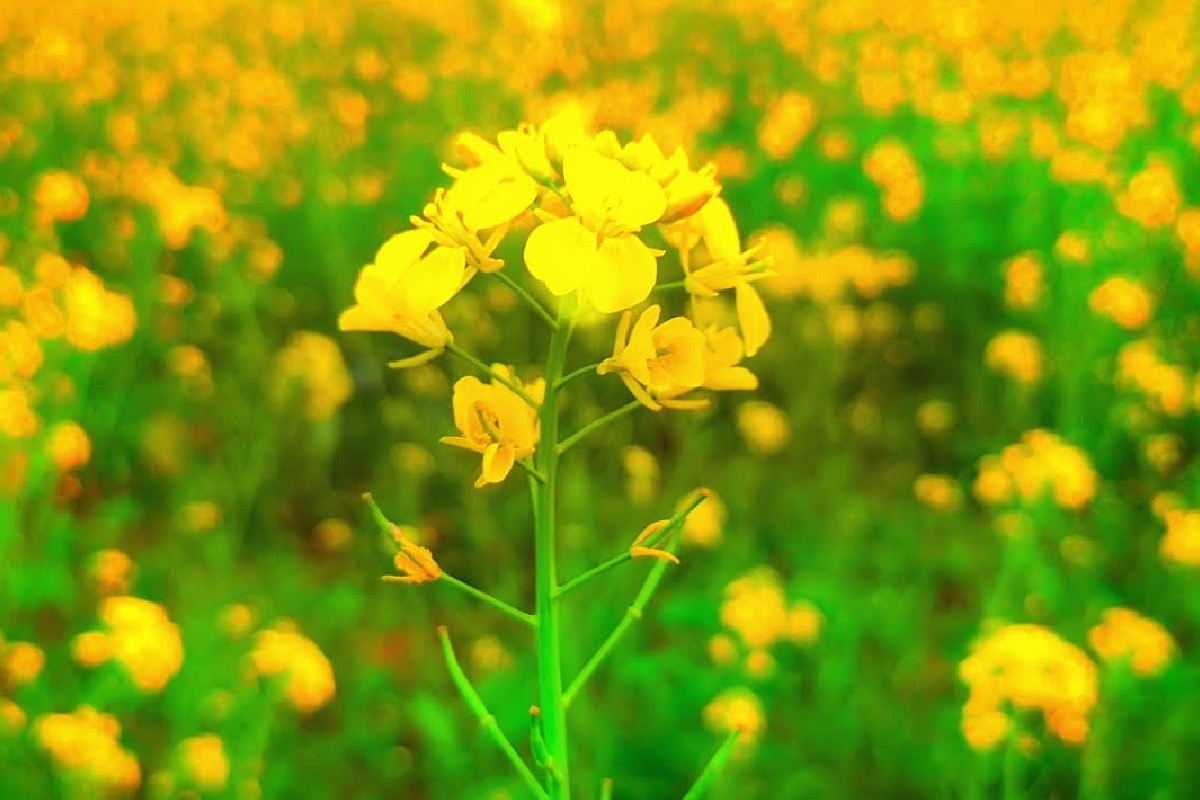A genetically modified (GM) hybrid variety of mustard has been approved for commercial cultivation by India’s biotech regulator. Once approved by the environment ministry, the DMH (Dhara Mustard Hybrid)-11 will become the country’s first GM food crop to make a market debut.
The proposal for the environmental release of the crop was cleared by the Genetic Engineering Appraisal Committee (GEAC) under the Union Ministry of Environment, Forest and Climate Change on October 18, it was revealed on Wednesday.
The committee’s recommendation will be valid for four years from the date of the release of the approval letter. Further studies and trials will be carried out in coordination with the Indian Council of Agriculture Research (ICAR) within two years, as per media reports.
Landmark decision by GEAC, biotech recommending the environmental release of the GM mustard hybrid DMH-11 and parent lines. Great decision to boost the GM technology sector that could benefit farmers.@DBTIndia @rajesh_gokhale @AshwaniPareek10 pic.twitter.com/kCD6w8xtiR
— DBT-NABI (@NABI_India) October 26, 2022
The same proposal was approved by the GEAC in 2017 but was rejected by the ministry, which suggested more studies on the genetically-modified crop to ensure that it is safe for consumption by the masses.
DMH (Dhara Mustard Hybrid)-11 was developed by a team of researchers at Delhi University led by then vice-chancellor Professor Deepak Pental. A scientific committee under the committee has also accepted a dossier submitted by Pental.
During its meeting on October 18, the GEAC also allowed conducting field demonstration studies on the effect of genetically engineered mustard on pollinators like honey bees.
A pollinator is anything that helps carry pollen from the male part of the flower (stamen) to the female part of the same or another flower (stigma), an essential process for a plant to become fertilized and produce fruits, seeds, and young plants.
Meanwhile, Australia’s Gene Technology Regulator has issued a licence to an Australian company for the commercial release of the Indian GM mustard.
In a statement released on October 19, the regulator said: “The release is authorised to take place throughout Australia. The GM Indian mustard and products derived may enter general commerce, including use in human food and animal feed.”
The move to introduce GM crops is part of India’s ambitious goal of achieving self-reliance in edible oil seeds.
However, environmental and agriculture experts have expressed concerns regarding the safety of the GM crop.
In the past, efforts to introduce genetically modified crops have faced stiff resistance from political leaders and experts. The recent move is likely to see opposition from environment activists and advocacy groups like the Swadeshi Jagran Manch (SJM), an arm of BJP’s ideological mentor Rashtriya Swayamsevak Sangh (RSS).
In 2009, then environment minister Jairam Ramesh put India’s first GM food crop, Bt Brinjal under moratorium through it had necessary regulatory approvals.









